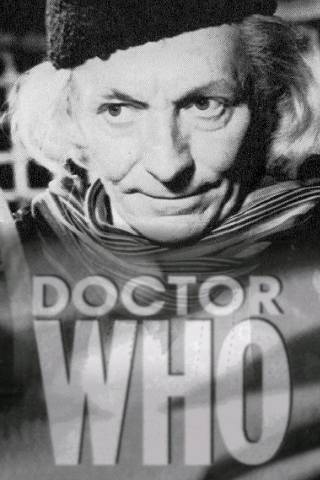William Hartnell was born in London on January 8, 1908. He was the only child of his unwed mother, Lucy Hartnell. (Perhaps embarrassed by his background, Hartnell claimed in interviews that he was born on a farm in Devon and raised by both of his parents.)
Hartnell spent much of his early life in foster care while his mother held a nursing job in Belgium. Growing up in poverty, he became a self-professed "street urchin," proficient at shoplifting and sneaking into movie theaters. He soon developed a passion for acting, inspired by his favorite performer, Charlie Chaplin. He later described Chaplin as a "guiding star" who "influenced me more than any other factor in taking up acting as a career."
While boxing at a boys' club, Hartnell met Hugh Blaker, an art collector and amateur poet. Blaker ultimately became his father figure and benefactor, and gave him tuition money for the respected Italia Conti drama school.
In 1925, Blaker arranged for Hartnell to join a theater company led by noted Shakespearean actor Frank Benson. Three years later, Hartnell toured with another company in Canada. During the trip, he met his future wife, Heather McIntyre; they married in 1929.
Upon returning to England, Hartnell successfully made the transition from theater to film acting. He starred in dozens of "Quota Quickie" films, which were made fast and cheap in order to compete with Hollywood imports. Although he played a number of comic parts, he became best known for portraying criminals and other hard-edged characters (he later complained of being typecast as "the eternal 'tough guy' of British films").
Despite his problems with typecasting, Hartnell did land a number of excellent roles. In 1947's Odd Man Out, directed by Carol Reed, he appeared as a bartender who shelters a wounded IRA man played by James Mason. Ten years later, Hartnell won acclaim for his performance as a naval officer in Yangtse Incident. In 1963's This Sporting Life, his role as Johnson, a washed-up former athlete, caught the eye of Doctor Who producer Verity Lambert and led to his casting in the series.

Doctor Who revitalized Hartnell's career, winning him a new generation of fans. In contemporary newspaper interviews, he talked about how he enjoyed pitching his performance at younger viewers. "I communicate fear to children because they don't know where I'm going to lead them," he remarked. "This frightens them and is the attraction of the series."
He also described the role as overwhelming, claiming once that "Dr. Who seems to be taking over." He confessed that working long hours on the series made him "agitated" and "irritable with people."
Hartnell wanted to remain in the part for at least five years, but failing health and disagreements with the production team triggered his departure from Doctor Who in 1966. Once noted for his precision in delivering lines, the ailing actor found himself struggling more and more to remember his dialogue while filming his final episodes of the series.
He returned to the role of the Doctor once, in the tenth anniversary special The Three Doctors. He died shortly afterwards, in April 1975.


No comments:
Post a Comment